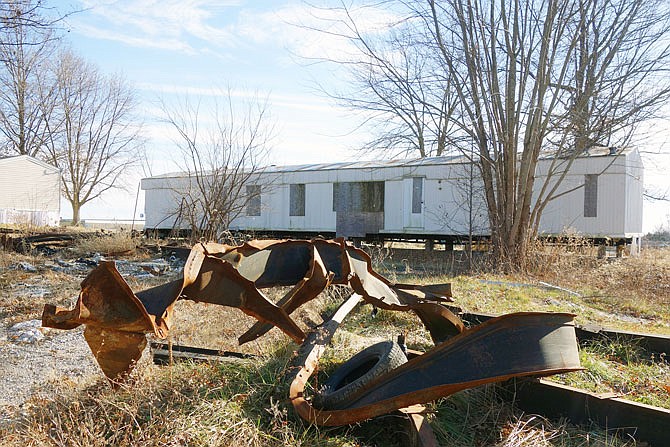HOLTS SUMMIT - Holts Summit officials are crafting ordinances with the goal of eliminating dangerous housing around town.
These ordinances are still being developed and were discussed during Tuesday's Board of Aldermen meeting. One introduces occupancy permits, another defines dangerous and nuisance buildings and how they are to be addressed, and a third creates a vacant building registry.
"The point is to prevent dilapidated buildings, which are on the rise," City Clerk Rachel Anderson said.
As Mayor Landon Oxley explained, Holts Summit is a relatively new town, having been incorporated in 1973. That means there are plenty of inconsistencies and gaps in the town's code and ordinances for city officials to fix.
Occupancy permits
During the most recent meeting, the focus fell on the ordinance regarding occupancy permits. According to the draft, the ordinance would apply to all Holts Summit residential properties.
If it passes, any time a new building is constructed or the primary occupancy of an existing resident changes, the owner or occupier must obtain an occupancy permit from the city. If the property hasn't been inspected within the last year, the property's owner must request an inspection through the city.
To give an example: Bob moves to Holts Summit and rents an apartment. The apartment last passed an inspection 10 months ago, when the previous tenant moved in. It's Bob's responsibility to obtain an occupancy permit, filing an application with the city and paying a $25 fee. No inspection is needed during his time as a tenant.
Bob moves out two years later. The landlord, Joe, must obtain an approved inspection from the city before the next tenant may rent the property, because it's been well over a year since the last inspection. Joe must pay an inspection fee of around $200.
"An unscrupulous landlord might try to push that off on the tenant," City Attorney Dave Bandre said. "We've got to be able to punish the owner for renting without an occupancy permit."
If the inspector notes deficiencies, Joe may apply for a temporary occupancy permit and has up to 180 days to bring the building into compliance. If he fails to do so, the inspector will file a complaint with the municipal court.
"The ordinance is based on ones in Bland, a small town where I used to be city clerk, and Jefferson City, which is a larger city," Anderson said.
To pass the inspection, a property must measure up to the International Building Code and the requirements laid out in the dangerous buildings ordinance currently being developed.
Until the city can afford to hire an inspector, the current plan is to either hire a contractor or have building inspector and City Maintenance Superintendent Mark Tate handle inspections. Tate expressed reservations about the scope of the job and his qualifications.
"I'm a structural inspector, not an electrical or plumbing one," he pointed out. "This is big. (It'll be hard) for about the first five years until we get a lot of those older mobile homes out."
Tate alluded to another idea floated by aldermen: introducing a requirement that after a mobile home is deemed unoccupiable and moved out, it can only be replaced by a newer mobile home - one built within the last 15 years. The goal is to cut down on old, decrepit and dangerous mobile homes being rented to people in area mobile home parks.
"I have people calling all the time, saying (the place they rent) has wires hanging out and so on," but without an ordinance such as this, the city has little recourse, Tate said.
Aldermen also briefly discussed the proposed vacant house registry, which would require the owners of vacant buildings to keep said buildings up to code or pay a $200 "registration fee" to the city twice a year. The main goal is to ensure vacant buildings don't become occupied by squatters, who often enter through broken windows and so on, Anderson said.
Officials said there will be plenty of chances for the people of Holts Summit to voice their opinions about these ordinances as they're developed across the next few months.

